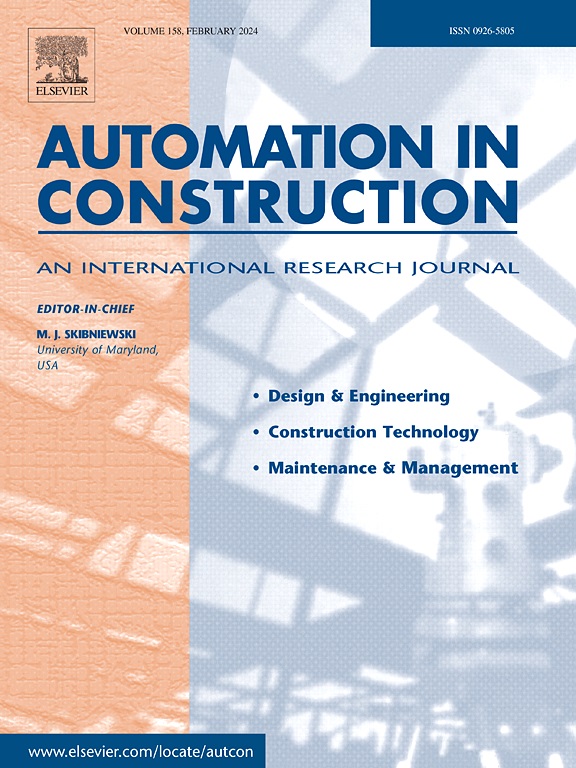数字孪生体构建,重点关注孪生体人机界面
IF 9.6
1区 工程技术
Q1 CONSTRUCTION & BUILDING TECHNOLOGY
引用次数: 0
摘要
尽管在建设中越来越重视数字孪生,但人们对如何使人类与这些系统有效互动的理解有限,限制了它们增强决策的潜力。本文探讨了“如何利用施工控制室作为数字孪生接口,提高数字孪生施工工作流程决策的准确性和效率”这一研究问题。利用设计科学研究开发了人-数字孪生界面框架,并在实际工程中进行了评估。研究结果表明,控制室可以作为数字孪生生态系统中的动态接口,提高协调效率和决策准确性。这一发现对从业者和研究人员来说意义重大,因为它强调了数字孪生接口在增强决策方面的作用。本文为未来人类-数字孪生交互和机器学习在建筑中的研究开辟了道路,如模仿学习、编码隐性知识和新的HCI范式。本文章由计算机程序翻译,如有差异,请以英文原文为准。
Digital twin construction with a focus on human twin interfaces
Despite the growing emphasis on digital twins in construction, there is limited understanding of how to enable effective human interaction with these systems, limiting their potential to augment decision-making. This paper investigates the research question: “How can construction control rooms be utilized as digital twin interfaces to enhance the accuracy and efficiency of decision-making in the digital twin construction workflow?”. Design science research was used to develop a framework for human-digital twin interfaces, and it was evaluated in a real-world construction project. Findings reveal that control rooms can serve as dynamic interfaces within the digital twin ecosystem, improving coordination efficiency and decision-making accuracy. This finding is significant for practitioners and researchers, as it highlights the role of digital twin interfaces in augmenting decision-making. The paper opens avenues for future studies of human-digital twin interaction and machine learning in construction, such as imitation learning, codifying tacit knowledge, and new HCI paradigms.
求助全文
通过发布文献求助,成功后即可免费获取论文全文。
去求助
来源期刊

Automation in Construction
工程技术-工程:土木
CiteScore
19.20
自引率
16.50%
发文量
563
审稿时长
8.5 months
期刊介绍:
Automation in Construction is an international journal that focuses on publishing original research papers related to the use of Information Technologies in various aspects of the construction industry. The journal covers topics such as design, engineering, construction technologies, and the maintenance and management of constructed facilities.
The scope of Automation in Construction is extensive and covers all stages of the construction life cycle. This includes initial planning and design, construction of the facility, operation and maintenance, as well as the eventual dismantling and recycling of buildings and engineering structures.
 求助内容:
求助内容: 应助结果提醒方式:
应助结果提醒方式:


